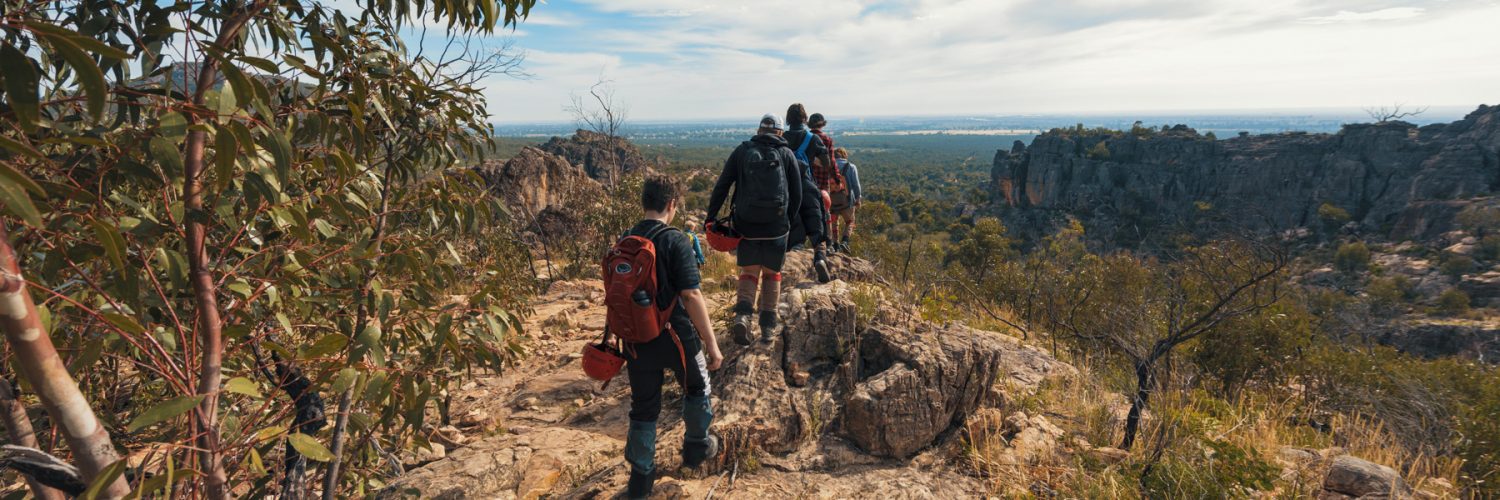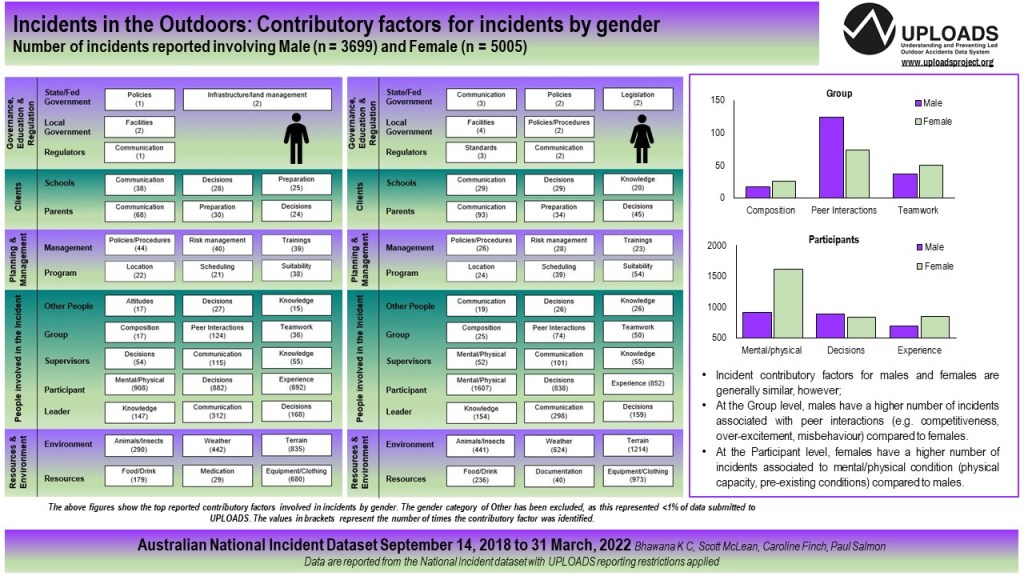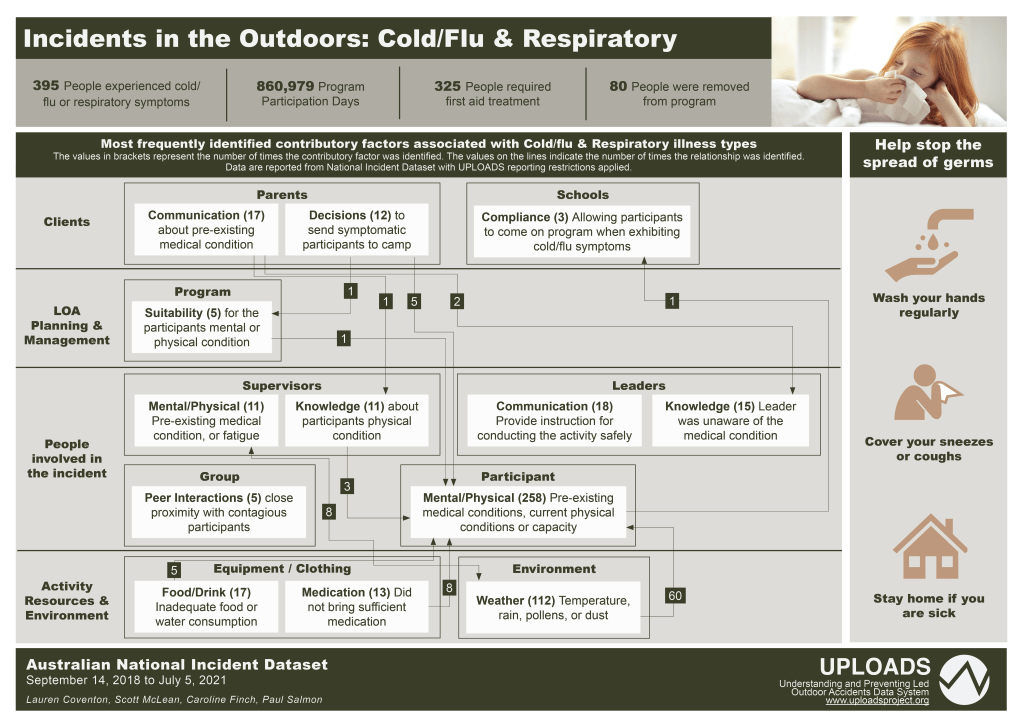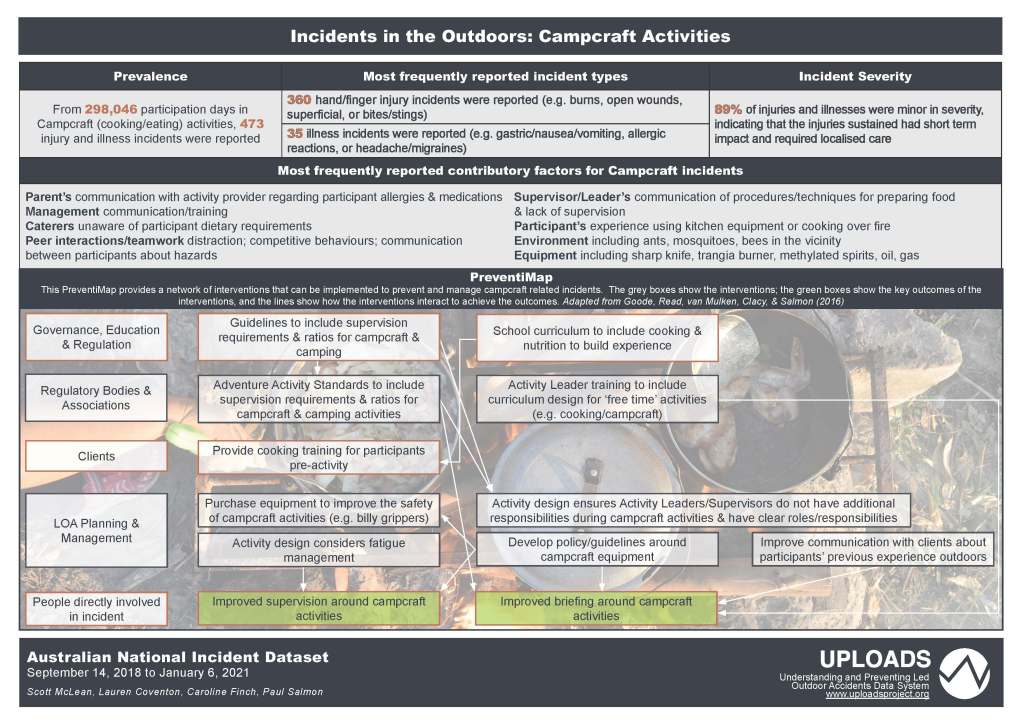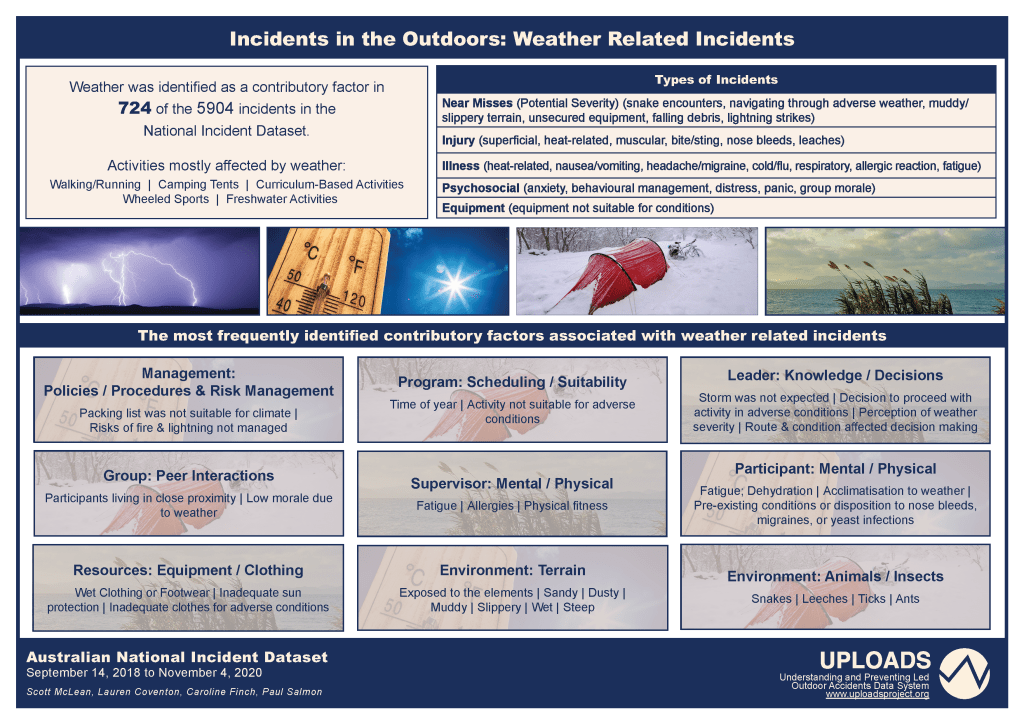In this infographic, we examine the reported incidents involving animals and insects. In total 700 incidents involving animals and insects have been reported to the National Incident Dataset since 2018. The most frequently reported incidents involved ants, insects, and mosquito bites, however, incidents were reported involving a range of animals including snakes, horses, spiders among many others.
This information is provided to support the led outdoor activity sector in order to review the design, development, and delivery of activity programs and training, as well as to inform risk management strategies.

